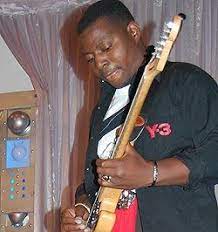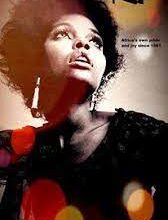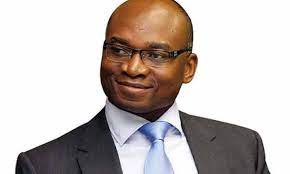Tongai Moyo was a one of the popular musicians of the Sungura music genre | Published By ZimLegends
Walking Down The Memory Lane - Lest We Forget | By ZimLegends

Tongai Moyo
 By Kamangeni Phiri
By Kamangeni Phiri
When sungura legend, Tongai Dhewa Moyo, breathed his last on 15 October, 2011, many believed the genre he helped promote had died with him.
Critics say since the passing on of one of the genre’s finest exponents, Tongai or Igwe, sungura suffered a knock.
Of note, critics argue, is how Tongai’s polished acts and rich lyrical content used to push his rival, Alick Macheso, another sungura legend, to produce quality songs.
“Most top sungura musicians are now more focused on guitars and dancing only. Their songs are lyrically poor but the guitars remain very entertaining. Macheso is among the guilty ones. It was different during the days of Tongai Moyo when the late singer and Macheso would compete to produce quality works and match them with captivating live shows,” said former Chronicle Leisure reporter, Chamunorwa Murava.
The affable Utakataka Express front man succumbed to Non-Hodgkin’s lymphoma at the age of 43 at St Annes Hospital in Harare, after a six year battle with the cancer disease which attacks white blood cells.
Moyo, who was widely known by his totem, Dhewa, had earned his stripes as a musical giant through hits like Hurungudo, Hutungamiriri, Zvinoita Murudo, Nemumvura Mese, Raramo, Muchina Muhombe, Samanyemba, Chubvu and Sunga Dzisimbe, among many others.
His stage work, dazzling smile and smartness lured fans of all classes to his shows. Women fell in love with Dhewa’s chants and songs that contained generous praises for them at live shows. His songs also had catchy lines for hustlers, especially touts and informal artisanal miners, commonly known in local lingo as makorokoza. Tongai’s message was themed along, love, unity, good governance and hard work.
He struck a special rapport with his fans and had an ability to keep dishing out hit songs that appealed to them. This resulted in the late musician earning a bag of showbiz names like Father Flower, Igwe, Mopao Mkonzi, Muchina Muhombe, Bvumavaranda and Murozvi Mukuru. Some of the monikers like Igwe were self-given while others like Muchina Muhombe came from the fans in appreciation of his serial hits. Fans who attended Tongai’s shows would testify that his smart dressing on and off the stage reflected his affability and determination to maintain a high degree of excellence in everything he did.
But it was his great rivalry with Macheso that will forever remain etched in the minds of many sungura lovers.
For every hit song that Dhewa unleashed, Macheso would release an equally hot project. The two would even diss each other through their songs but were quick to deny this in interviews.
The two giants, who are age mates born three months apart in 1968, would take their rivalry to live shows where they would come up with dance moves and chants as they sought to outperform each other. Fans were divided as to who between the two was the best artiste.
But there is no such confusion among sungura fans in the city of Kwekwe, the late music icon’s base and home town. Dhewa was and still remains a clear favourite of many in the mining city. More than ten years after Tongai’s death, his music continues to dominate most shops’ hi-fis in the CBD, as if the man was still alive and releasing new hits.
Nelson Chamisa, then Minister of Information Communication Technology in the government of national unity summed it well when he described the late artiste as a treasure to the nation in his eulogy as guest speaker at the burial of the sungura icon way back in 2011.
“Tongai was a unifier and a builder. His music would encourage even us ministers to stay focused and work hard. Tsime rinowoneka kukosha musi warinopwa (We tend to value the importance of a well once it runs dry). We drew some valuable lessons in the life and career of Dhewa. Firstly, he taught us that Harare is not Zimbabwe. Dhewa was a successful musician but he chose not to relocate to Harare. He continued to lift the Kwekwe and Midlands flag high. Dhewa became a representative or ambassador of all small towns and he continued to work towards uplifting them so that they develop to the same level as Harare. Secondly, Dhewa was full of love, he was a philanthropist. He loved everyone regardless of tribe or party affiliation,” said Chamisa now leader of the main opposition, Citizen for Coalition Change.
Tongai Moyo’s romance with the music industry started in 1988 in Kwekwe as a virtually unknown artiste. The Muchina muhombe hit-maker played with a number of musical groups in the Midlands mining city before joining Shirichena Jazz Band as a session musician.
Dhewa decided to go solo around 1990 and formed his own group Utakataka Express. He released his debut album, Vimbo in 1996. Although the album earned him a name in the music industry, it also resulted in the musician being labeled a “Leonard Dembo copy cat”. Tongai never denied the allegation as he confessed that he was greatly inspired by the late music genius.
It was, however, his fifth album Samanyemba released in 2001, with the hit, Murozvi Mukuru, that proved to be the game changer. He tweaked the Dembo beat and came up with his own that was a fusion of sungura and a bit of rhumba. He also collaborated with his best friend and homeboy, Somandla Ndebele, on the album Moyo Wekurira (1999) which dominated music charts.
Tongai never looked back and had released 14 albums by the time of his death in 2011.
His album Naye saw Dhewa dominating the music scene with the mega hit, Nemumvura Mese, which earned him two awards at the National Arts Merit Awards.
At the time of his death, Moyo had just released his 14th and last album, Toita Basa.
His singing talents saw him touring the USA, United Kingdom, South Africa and Botswana, among many other countries.
Tongai was born in Kwekwe on 12 March, 1968. He spent his formative years in a farming area called Sherwood Estate, about 25km out of Kwekwe. Tongai’s childhood was filled with some difficulties. His local school offered classes up to grade four and his parents had to transfer him to a neighbouring estate where he had to stay with his uncle as he continued with his studies.
“My uncle worked for a white man at a certain store where he stayed. I joined him there but unfortunately the man sold his store and that was the beginning of a bad experience. We had to pack all our items. I was destined to Gweru where I had to stay with a cousin but he was not welcoming. He refused to stay with me. You see, my father was an only child, and this cousin was from uncles of a distant relationship. So he had never liked our family and staying with him was hell. So I left,” Tongai said in an interview with the now defunct Trends magazine way back in 2007. He went on to complete his high school at Mbizo High School in Kwekwe. He then worked as an accounts clerk at Tiger Reef Mine and later at Kwekwe General Hospital. He cited the late superstar, Oliver Mtukudzi, as having playing a pivotal role in shaping his music. Tongai was inspired by the late Devera Ngwena rhythm guitarist, Jabulani Bitu to play the guitar.
The musician is survived by six children that he sired with different women. His eldest son, Peter Moyo, inherited the band and has been doing fairly well ever since.
Tongai’s other son, Tongai Obert Moyo, is also working separately on keeping the late musician’s legacy alive with his group by the same name – Utakataka Express. He already has a hit, Mbinga, under his name.
Musicians meet annually on the 15th of October to commemorate the passing on of Tongai Moyo, one of Zimbabwe’s finest vocally gifted singers.
His closest friend, Somandla Ndebele, also a celebrated musician, still misses Tongai a lot, a decade after his demise.
“Dhewa was my best friend and I always remember him every time I am on stage. That is why I often play his songs during most of my shows.
Without him, I feel lonely. Every time I visit places where we used to perform together, I am overwhelmed by those fond memories,” he said.
Ndebele teamed up with Sulumani Chimbetu and Tongai’s eldest son, Peter to record a song in 2015 titled Tribute to Tongai Moyo as a way of honouring his late friend.
Dhewa was buried at his rural home in Sisombe Village in Zhombe, Kwekwe district.



28 Comments